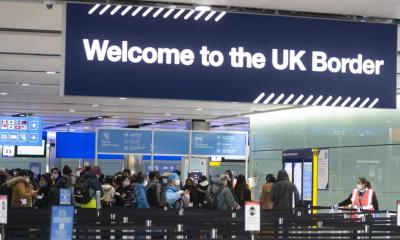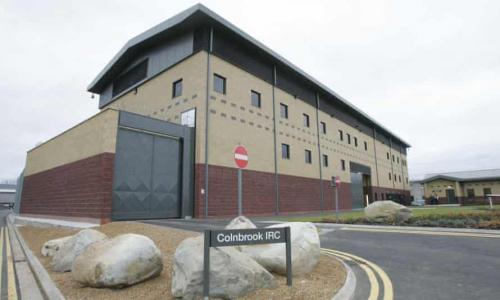Outrage over Italian citizens detained and deported by UK

ROME - In light of the numerous reported cases of Italian and European citizens being detained and deported by the UK’s border force, Benedetto Della Vedova, Undersecretary of State for Foreign Affairs, is planning a visit to London to discuss the matter with British officials, reports Adnkronos.
The Italian embassy has also taken formal steps to ask that the British authorities respect international and consular law, and inform Italian diplomats immediately in the case of the detention of Italian citizens, so that the embassy can provide assistance. Della Vedova reportedly made a similar request to the British Ambassador in Rome, Jill Morris, in a meeting at the Palazzo della Farnesina.
Several European citizens, including dozens of Italians, have spoken of traumatic experiences being detained, or even sometimes deported, by British authorities upon arrival in the UK since Jan 1, when the country officially left the EU.
Marta, 24, recounted her “nightmare” experience in an interview with La Repubblica. Marta, a graduate from the Academy of Fine Arts in Verona, had gone to work as an au pair for her cousin, a NHS doctor who has lived in the UK for 15 years, when she was detained by border agents at Heathrow Airport for not having the right documentation.
Due to the lethal cocktail of Covid and Brexit, non-residents can only enter the UK for essential work reasons, and so though Marta had a letter from her cousin declaring her intentions to work and live with the family (family reunification can also count as an essential journey), she had no work visa. As Marta describes, “they seized my suitcases and personal belongings, searched me, asked me questions, locked me in a small room under surveillance at the airport. Until 4 a.m.”
She was then transferred to Colnbrook Immigrant Removal Centre in Uxbridge, an institution that has commonly been described as a “prison” - even by the border guards that took her there. This description is no doubt something that British authorities want to avoid, though their policy of confiscating detainees’ phone for fear of photos or videos being shared doesn’t help their cause. Marta also recounted being searched (“I’ve lost count of how many times”) and having her photo and fingerprints taken.
Marta was lucky enough to see the back of Colnbrook, a place with “barbed wire atop the walls, bars on windows, and huge security gates,” around 12 hours later when she was put on a flight back to Milan, but other people aren’t so lucky. Marta met a girl in Colnbrook from Tuscany who had already been there five days. Marta said, “she didn't know why. She thought she had not been given a return flight right away because the return ticket cost more than what she had paid for.”
“She spent four days on her own; then, on the fifth day, they brought two more girls. She told me the first few days she was going crazy; it was ‘a horrible nightmare’. Always alone, no contact, her cell phone had also been seized, and she couldn't remember her family members' phone numbers. She had to wait for them to find her.”
Marta, in addition to the emotional scars her inhumane treatment no doubt left, also arrived in Italy with a deportation stamp in her passport, which was only returned to her when she landed.
There have been several other cases of European citizens detained at British airports, many who had gone to the UK in order to find a job or for an interviews (and so obviously no work visa yet), and even some who had gone for an unpaid internship, which isn’t considered essential.
These unlucky Europeans routinely have their passports and phones confiscated and are sent to detention centres before being deported, even if they have family in the UK. Luke Piper, who works for ‘the3million’ (an organisation protecting the rights of EU citizens in the UK), said rules were confusing and accused the Border Force of being overly aggressive. “There is absolutely no need to send someone to Yarl’s Wood [another detention centre] if they can stay with family until the expulsion,” he said.
Several people have also blamed airlines, namely Vueling, for letting people fly without the correct documentation, though Vueling’s spokesperson, Tania Galesi, has said that “it is officials in the country of destination who establish and enforce entry requirements.”
ol




